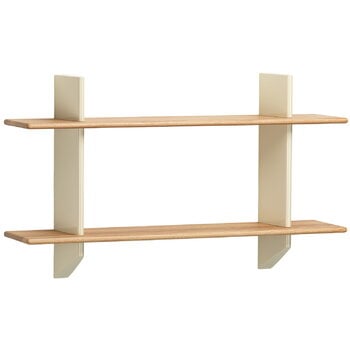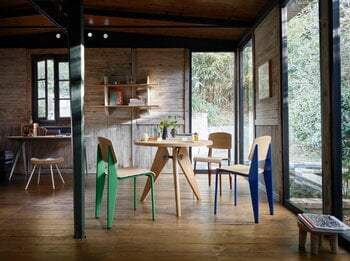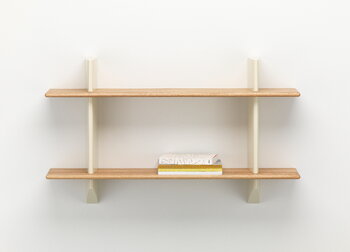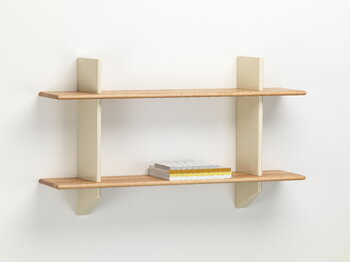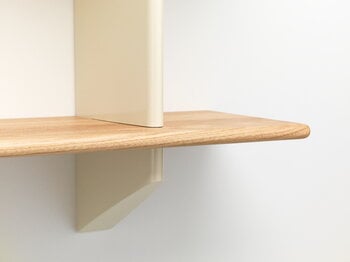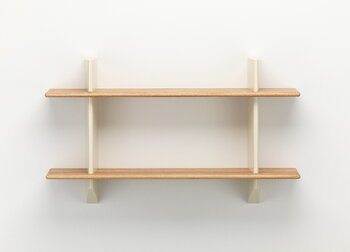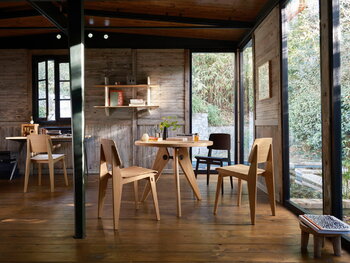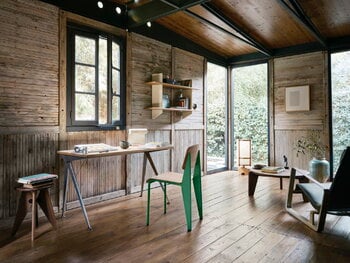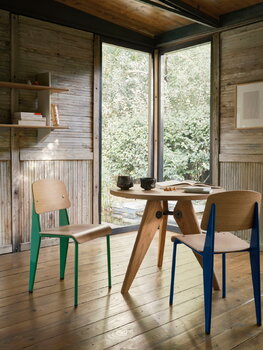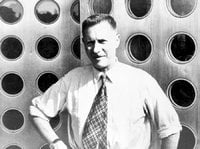Vitra's Rayonnage Mural is a distinctive wall shelf, designed by Jean Prouvé in 1936, characterised by the geometric shape of its two vertical brackets. A recurring feature in several Prouvé designs, the shape is reminiscent of an airplane or a ship's rudder, and it brings fascinating three-dimensionality to the otherwise understated design.
The shelf's subtle hue is part of Jean Prouvé’s original colour palette. The colour used to be called “ecru” in Vitra’s furniture, but in 2022, the name was changed to Blanc Colombe, Prouvé’s original name for the hue. The poetic name is French, and its direct translation would be “dove white”.
Like most of Prouvé's creations, the Rayonnage Mural was designed for a specific project: the École Nationale Professionnelle in the city of Metz. Made of wood and metal, the shelf is sure to fit a variety of spaces, serving a myriad of purposes. What would you fill it with: books, collectibles or something else entirely?
